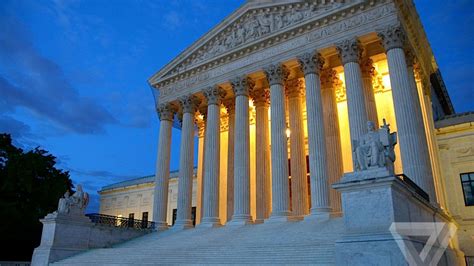By Katherine Fung
The Supreme Court took up its first major Second Amendment case in over a decade on Wednesday, and while the justices’ questions suggested that New York’s law is likely to be stricken down, they also signaled that they think gun control laws are excessive not only in that state but across the nation.
“This case signaled not only the court’s growing hostility to restrictions on concealed carry—the subject matter of today’s case—but reflects the view of some justices that there are too many gun control laws and that we need to start striking gun control laws down,” UCLA law professor Adam Winkler told Newsweek.
The Supreme Court took up its first major Second Amendment case in over a decade on Wednesday, and while the justices’ questions suggested that New York’s law is likely to be stricken down, they also signaled that they think gun control laws are excessive not only in that state but across the nation.

“A significant portion of the gun safety movement’s current agenda is likely to come under attack in the coming years,” Winkler added. “I think bans on assault weapons and bans on high-capacity magazines are ripe for the new Supreme Court, with its newly invigorated Second Amendment, to strike down.”
During Wednesday’s oral arguments, several justices expressed skepticism on whether New York has the right to limit carrying guns in public.
Currently, the New York law requires a public carry applicant to demonstrate “proper cause.” The line of questioning from the court’s 6-3 conservative majority hinted that the justices believe the law imposes an intolerable burden on gun owners’ constitutional rights.
Winkler, who specializes in the Supreme Court and the Second Amendment, said that while it’s always hard to predict how the high court will rule, “it wouldn’t surprise anyone if the court were to strike down [the] New York law, given the recent appointments to the Supreme Court—strong pro-gun justices.”
This is the first gun case that all three of former President Donald Trump‘s Supreme Court appointees are hearing, and many conservatives have long anticipated that Justices Neil Gorsuch, Brett Kavanaugh and Amy Coney Barrett will rule in favor of gun rights advocates’ positions.
Kavanaugh, who promotes the idea that only history and tradition—not public policy concerns—should be used when considering the Second Amendment, has recently been in the majority more than any other justice.
On Wednesday, he signaled that he would side with the other right-leaning justices and help them secure the necessary five conservative votes.
“Justice Kavanaugh, who has written about the Second Amendment as a lower court judge, echoed some of his thoughts [on Wednesday],” Winkler said. “He seemed to express significant doubt about New York’s law and skepticism about whether the lower court had applied the right test to determine whether New York’s law is constitutional or not.”
During New York Solicitor General Barbara Underwood’s arguments, Kavanaugh said that the discretion provided to the officials who have the authority to approve licenses “seems inconsistent with an objective constitutional right.”
“Why isn’t it good enough to say I live in a violent area and I want to be able to defend myself?” he asked Underwood.
Although the court’s decision is not expected until spring 2022, experts warn that the ruling will have impacts on laws in seven other states.
“There’s a bunch of other cities that will feel the impact very quickly,” Winkler said. “If the court says that New York’s laws are unconstitutional, then those states that have very similar laws are going to see their laws struck down pretty quickly too. That includes California, Massachusetts and a variety of other states.”
Hannah Shearer, the litigation director at the Giffords Law Center, estimates that 25 percent of Americans—including those in Los Angeles and Boston—could be affected if the high court were to strike down New York’s law.
“If the NRA-affiliated petitioners succeed in getting the Supreme Court to recognize a broad right to carry concealed guns in public, gun rights extremists are likely to next target laws restricting open carry, as well as laws allowing states any discretion to deny carry permits,” even to people with dangerous criminal histories, like an arrest record for domestic violence, Shearer previously told Newsweek.
Winkler urged the gun safety movement to begin shifting its agenda and move away from its current efforts, in response to Wednesday’s hearing.
“It’s time to stop focusing on banning particular kinds of firearms or accessories, like high-capacity magazines or assault weapons, and focus more on gun violence prevention programs, getting adequate funding for community intervention programs, lifting restrictions on the Bureau of Alcohol, Tobacco and Firearms,” he said.
Read More From The PatriotAmerican
“The gun safety movement has reforms it can pursue. Indeed, some of these other reforms have been pursued by the movement for years, but they’ve been sidelined as assault weapons bans and high-capacity magazine bans—more high-profile reforms—take center stage,” Winkler added.
“I think that some of those other proposals and reforms are the wrong way to go today, given the current Supreme Court,” he said.

